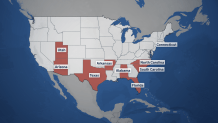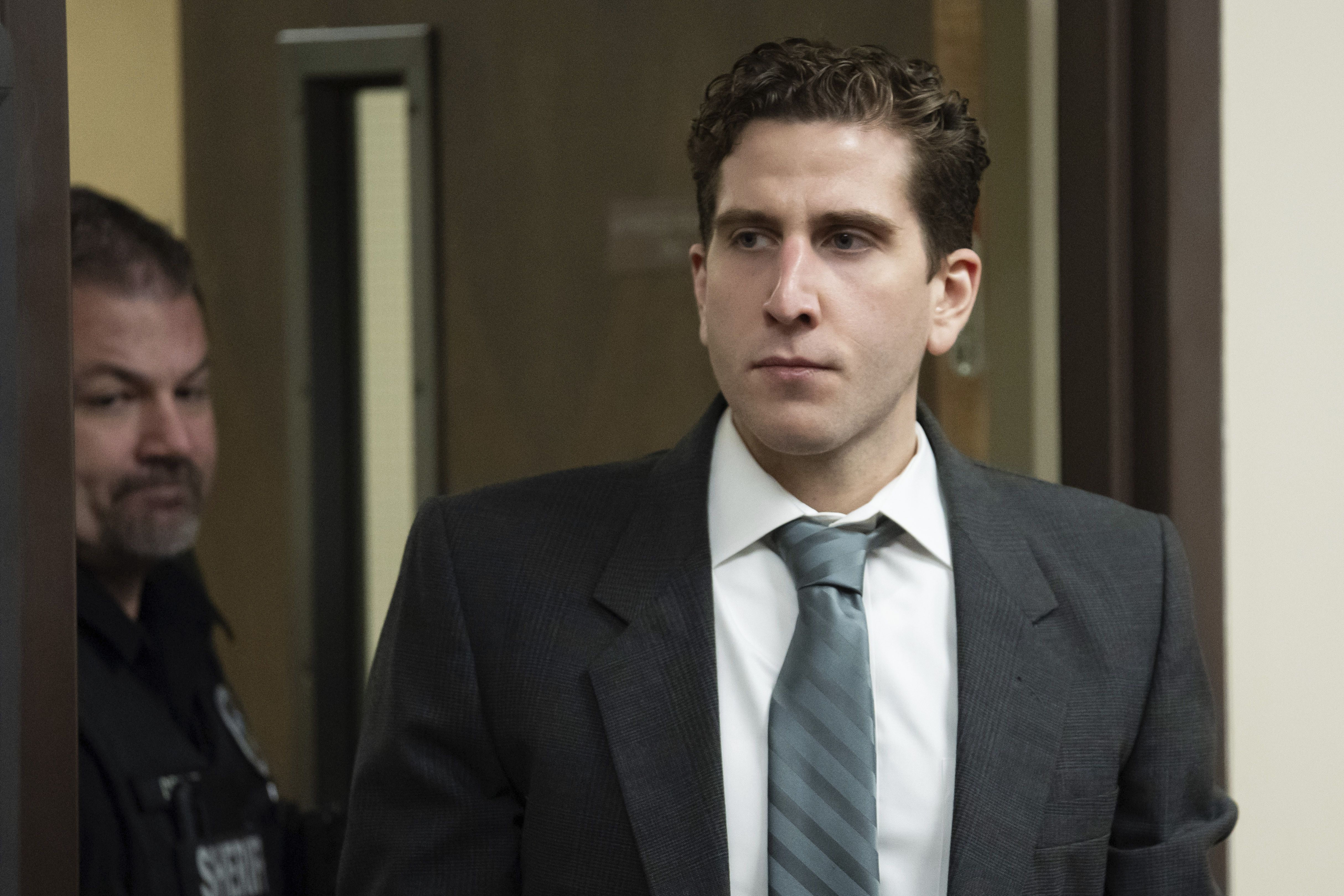What to Know
- New York, New Jersey and Connecticut have imposed a 14-day quarantine on travelers -- including CT residents -- from any state where infections pass a certain threshold
- The order currently applies to eight states: Alabama, Arizona, Arkansas, Florida, North Carolina, South Carolina, Utah, Texas though the list will be updated regularly.
- While New York is imposing fines on violators, the advisory in Connecticut will not come with any penalty if you are caught violating and is based on "individual accountability"
A joint travel advisory from the governors of Connecticut, New York, and New Jersey went into effect Thursday morning requiring a self-quarantine of travelers from COVID-19 hotspots amid a surge in cases across nearly half the country.
The joint travel advisory will not stop people from traveling, but it will require anyone coming in from states having a high infection rate to quarantine for 14 days.
The criteria for states that have a high infection rate are 10 infections per 100,000 residents on a seven-day rolling average or 10 percent or higher of the state's total positive test rate on a rolling seven-day average, said New York Governor Andrew Cuomo.
Some eight states currently meet that "high infection" threshold: Alabama, Arkansas, Arizona, Florida, North Carolina, South Carolina, Utah and Texas. The list of states subject to the quarantine will be updated regularly.

U.S. & World
"Hopefully this is the kind of protocols that will keep us safe," Governor Ned Lamont said Thursday at Bradley Airport. Lamont said if people are coming to the state for non-essential travel from one of those high-risk states, he said it's safer for everyone if they just stay home for now.
The quarantine began at midnight on Thursday.
"The northeast region is taking this seriously," said Lamont.
Governor Lamont said the state will be doing everything it came to let visitors know they can come to Connecticut but must "come safely."
"We welcome visitors but only if they self-quarantine from highly infectious states," Lamont said.
HOW WILL THE QUARANTINE BE ENFORCED?
Each state will decide on its own enforcement mechanism, Cuomo said.
As of Wednesday, Lamont said there were no fines planned right now for violation of the quarantine in Connecticut.
"Right now, it's going to be voluntary," Lamont said when asked how the quarantine will be enforced.
The state is focusing on "individual accountability" for compliance, said Josh Geballe, Connecticut's Chief Operating Officer.
"If we find that's not working, if we find that people are abusing that, we'll consider some stricter measures for enforcement," the governor said.
Geballe stressed there are no plans to utilize the National Guard to enforce the quarantine.
Lamont said the state will notify hotels, short-term rentals and Airbnbs about the quarantine requirements. Passengers to Bradley Airport will see signs alerting them to the quarantine.
"Right now, we're very strict on publicity," Lamont said.
In New York, if you are caught violating the travel advisory, you could be subject to a judicial order mandating quarantine and a possible fine, Cuomo said.
Governor Lamont was asked about Governor Cuomo's stance on enforcement and penalties.
"I know what he said and that's not where we are," Lamont said.
Lamont said he hopes voluntary compliance will work in this case as he said it has with mask-wearing.
Connecticut State Police said its troopers will not be out stopping out-of-state drivers.
Governor Lamont said he is considering a negative COVID-19 test result within several days of travel to Connecticut as a possible way to get an exemption to the quarantine citing business travelers and others who may not have 14 days planned here.
The new tri-state travel mandate also comes as summer travel to beaches, parks and New York City would normally swing into high gear. While people aren't legally barred from travel by any means, Cuomo said he's counting on people to act responsibly, given the challenge of enforcement, and threatened to fine violators up to $10,000 if they're caught.
"If you fly into New York, we'll have your name, we'll know where you're supposed to be staying, there will be random checks," Cuomo said on CNN Thursday. "You get pulled over by a police officer and he looks at where your residence, and says, 'How long have you been here?' You get sick, you go to a hospital from out of state and you test positive and you've been within the 14 days, you're violating the law and you're going to have a problem."
When asked on ABC's Good Morning America Thursday about the enforcement question and whether fines would be considered, Lamont said "I'd like to think we'll be able to self police, but if not, we'll ramp it up." The governor equated it to the fact that no fine was required to get residents to wear masks.
CONNECTICUT RESIDENTS RETURNING HOME MUST QUARANTINE TOO
Connecticut residents who travel to those highly-infected states will need to self-quarantine when they return home.
"If you're coming back from Miami Beach, you have to quarantine just like anyone else," Lamont said.
Both business and pleasure travelers will be subject to the quarantine.
Lamont on Wednesday cited the problem of states where 25 percent of people or more were testing positive, and where infections were spreading aggressively not just in nursing homes but among younger populations.
TRAVEL AND TOURISM IMPACT
Kevin Dillon, executive director of the Connecticut Airport Authority, said he expects the quarantine to impact travel to Connecticut.
Bradley Airport currently has regular flights between Florida, North Carolina and Texas, Dillon said. The quarantine comes as Bradley Airport was seeing increased passenger travel from the peak of the pandemic in April.
"Do I believe the quarantine is going to reverse some of the progress we've made? Yes, I do," Dillon said.
The governor said that air traffic at Bradley International Airport is down 85 percent. Now travelers getting off of their flights are greeted with signs reminding them of the two-week quarantine.
Dillon, said that the travel advisory will impact aviation, both at Bradley and across the nation. Lamont and airport leaders are working together to bring a testing site to the airport.
“To give folks an alternative,” said Dillon. “If you arrive here at Bradley and you take the test and the test is negative, then no need to quarantine.”
Lamont said he hopes travelers from New York, Massachusetts and New Jersey - other states in the country that also are showing success in keeping infection rates low - will see Connecticut as a safe place to enjoy a summer vacation.
The governor said that the state has reached out to travel agents and hotels to make sure they are informing guests of the new travel rule.
Leaders of the Whaler’s Inn in Mystic say they have been auditing their reservations for the summer and calling each guest to discuss their situation on a case by case basis.
“It is a little bit of a tough situation. Just because somebody has a Florida address on their license and what they provide to us as their mailing address, it does not mean they are in Florida,” said Amanda Arling, president of Whaler’s Inn. “They might have been quarantining through this whole crisis up here in New England.”
Arling said that while in a typical summer they would see more guests from the affected states, they have seen more "staycationers" this year because of COVID-19. As it stands less than five percent of their future reservations are impacted.
CORONAVIRUS IN CONNECTICUT
As of Wednesday, Connecticut reported 45,913 total coronavirus cases since the pandemic started. More than 4,000 people have lost their lives in the state because of the disease.
The daily numbers of new confirmed cases and deaths have fallen dramatically since the virus' peak in Connecticut in mid-April. Hospitalizations continue to decline daily with 124 people remaining in the hospital with COVID-19 complications. The positive test percentage for the state has hovered between one and two percent.
More than 400,000 total tests have been performed in the state.
Editor's note: Gov. Cuomo initially listed Washington state as one of the locations affected by the quarantine. Gov. Lamont's office later clarified that travelers from Washington state are not currently included. The list of states may change as officials continue to track the COVID-19 data from across the country.



